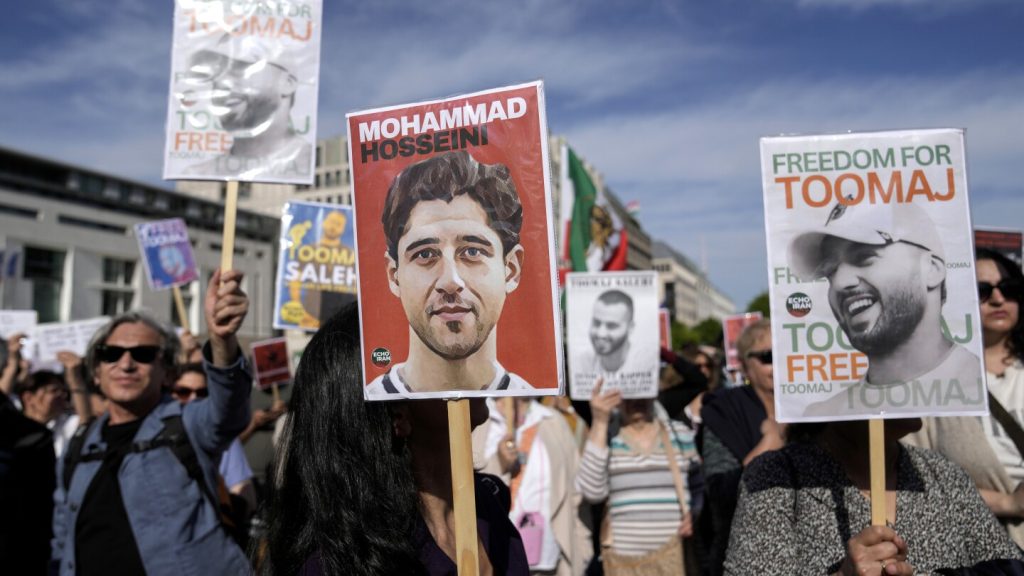A bipartisan group of lawmakers introduced legislation targeting Iranian officials involved in the prosecution and death sentence of rapper Toomaj Salehi, who criticized the Islamic Republic. The proposal would impose sanctions on judges, prosecutors, and investigators of Iran’s Revolutionary Courts, viewed as violations of human rights. The bill, titled the TOOMAJ Act, aims to support Salehi and other peaceful protesters demanding basic human rights and take targeted action against the Iranian regime. Democratic and Republican lawmakers have united in condemning Iran’s human rights record and role in conflicts in the Middle East.
Salehi, a 33-year-old rapper, was sentenced to death by a Revolutionary Court in Isfahan, Iran, in late April. The sentence was confirmed by Salehi’s lawyer, as Iranian officials have yet to publicly announce it. Revolutionary Courts in Iran often involve closed-door hearings, secret evidence, and few rights for those on trial. Salehi faces charges, including “spreading corruption on the Earth,” stemming from his music and participation in protests following the death of Mahsa Amini. Amini died in police custody after being detained for wearing her hijab too loosely, leading to mass protests and a violent security crackdown that killed over 500 people.
Salehi’s music often criticized the Islamic regime, predicting its downfall and highlighting issues like the government’s oppression and corruption. His arrest came shortly after his release from prison in mid-November, where he had spent over a year in custody. Following a video message where Salehi discussed being tortured during his time in prison, he was arrested again. State media released a video showing him blindfolded and apologizing for his words. Salehi’s case has drawn international attention, with supporters calling for accountability for the Iranian regime through music and protests.
Lawmakers leading the effort to support Salehi include Reps. Young Kim, David Trone, Mike Lawler, and Adam Schiff, who have denounced Iran’s human rights violations and crackdown against dissenters. Salehi’s lawyer plans to file an appeal in his client’s case, highlighting the lack of due process and transparency in Iran’s Revolutionary Courts. The proposed legislation aims to hold Iranian officials accountable for human rights abuses and show solidarity with individuals like Salehi who bravely speak out against injustice in Iran. As the international community monitors Salehi’s case, the TOOMAJ Act represents a bipartisan effort to condemn human rights violations in Iran and support those fighting for freedom and justice.


